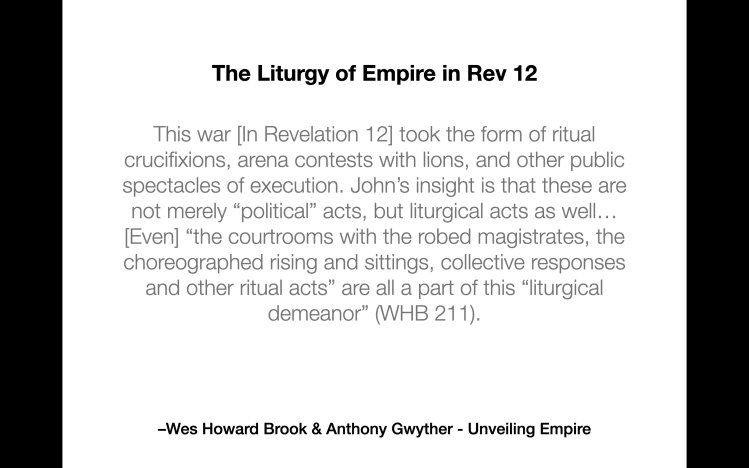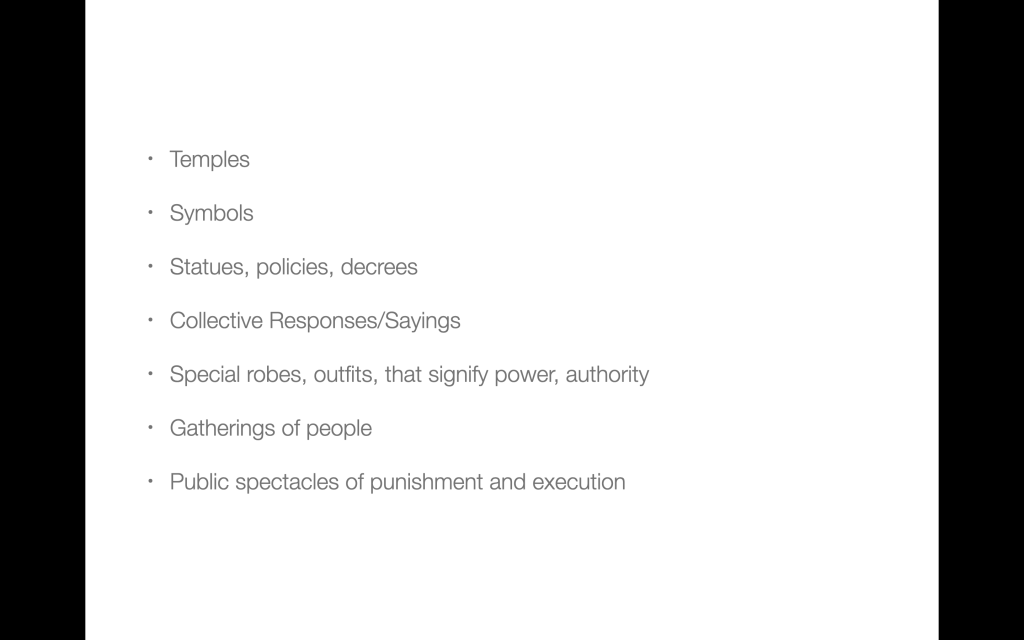Unmasking Liturgies of Empire
One of the things I am currently focused on and really hungry to know more about is the concept of liturgies of resistance. A concept I originally discovered when studying the Book of Revelation. I think this is one of the keys to our ability to resist and survive empire (and the “liturgy of the lamb” is one of the practices I write about in my book that I see from Revelation that are key to the resistances of empire). I also believe that in the majority of Christian churches today, the liturgies have been so de-fanged, watered-down, even compromised by the religion of empire that they are not strong enough to inoculate us in any meaningful way.
What are the liturgies that form us currently? Here liturgy being rituals that we engage in that shape our desires, our language, our imaginations about what is possible and what is “out there.” Liturgy shapes us by telling us we are in a certain story. The American empire fueled by late-stage capitalism is rife with liturgies.
Liturgies of empire (I have been greatly helped by James Alison‘s thinking on this):
- Shape our desires by the kind of story we see ourselves a part of (if we are the good guys and “they” are the bad guys then we will see our actions as benevolent)
- Shape what we believe is possible (and what is impossible)
- Dull our senses so that we are not aware of the suffering of our neighbors
- Drive us towards seeing the “sacrifice of others” (or scapegoating) as a necessary part of what we do in order to maintain the peace
- Distract us by excitement, sensationalism, and spectacle that feels good to be on the inside of but keeps us from actually knowing what is going on
Scholar Wes Howard-Brook points out that in Revelation 12 there is a clash between these two liturgies and some of the ways we see these liturgies in use around us:


We are surrounded by these kinds of liturgies from when we pickup our phones and scroll the news or social media, to the ways we rally over and against one another politically, to the policies and procedures of our country and organizations, to our justice system (and all its proceedings and liturgical mannerisms), to what we passively consume whether it be news or other forms of media, to where we live, and how we worship and who we worship with.
In the coming weeks and months, I plan to unpack this further and develop my own thinking around liturgies of empire and liturgies of resistance and as a part of a larger project I am working on. I want to get clear on this subject for myself and I want to share ideas about what communities are doing now to think about these issues. If we are going to resist the religion of empire in any meaningful, we are going to need stronger, more potent forms of liturgy to shape our communities. I want to understand what makes them stronger and I want to know what we can put into action as people who are in this fight.
For today, I invite you to in a reflective manner, consider the above list and think through the places where you may be intentionally or unintentionally participating in “liturgies of empire.”
Ways to Connect with Wess:
If you like this post and/or have feedback you’d like to share you can connect with me on Mastadon: @wess@writing.exchange or through the Contact